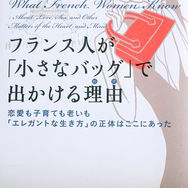
BOOKS & other writing
National Bestseller
"Every woman over 21 should read this book. Written with arch intelligence and light-handed irony. Delicious, smart, and not at all fattening."
Forgot the oo-la-la clichés about French women. Never mind how they cook, wear skirts the size of postage stamps, or eat foie gras and don't get fat (and, by the way, they do). It's not surface glam that gives French women their allure; it's their mindset and culture. Less a how-to and more a how-not-to, national bestseller What French Women Know takes a deep-dive into the world of that mysterious je ne sais quoi.
An irreverent and refreshing counterpoint to the love dogma of our times, What French Women Know has the distinction of being critiqued by, among others, journalists James Wolcott (Liberté, Fraternité, Superiorité) and Maureen Callahan (French Women Can Suck It!).
A Gallic prescription for living a life that is richer, more sensual, messier, and a lot more fun.
- The Boston Globe
Entre Nous: A Woman's Guide to Finding
Her Inner French Girl
Yes, there was a time when books about French women were few and far between...
Reams have been written trying to decode the mystery of a people who smoke, drink, eat goose fat, and still look fabulous. Entre Nous was written at the turn of the century (that's right), before books about French women became an industry. Provocative and practical, Entre Nous explores the world of the French woman in its many iterations.
Ollivier spent a decade in France and learned a thing or two about how French women cultivate that sense of being easy in one's skin ... (she) helps us bridge the cultural gap. - The Seattle Times
Wistful, tender, hilarious...will move you the way only good writing can.
-Chicago Tribune
Mothers Who Think is a national bestseller and winner of the American Book Award. It is comprised of nearly forty essays by writers grappling with the new and compelling ideas that motherhood has dangled before them. Elevating the discussion of motherhood above the level of tantrum control and potty training, this collection covers an unparalleled range of topics, from the impossibility of loving your children equally to raising a son without a father, from worrying that your priviledged black child is become too 'white' to the free-floating anger most mothers feel but wouldn't dare admit - except to other mothers. These essays are a testament to the notion that motherhood gives women more to think about, not less. Forward by Anne Lamott.
"Skip the flowers and candy this Mother's Day, and buy this book instead." - Publishers Weekly
Because I Said So is a new collection of fiercely honest essays that captures the challenges of motherhood in the twenty-first century as no other book has. Deeply thoughtful and enlightening, the stories range from the anguish of giving up child custody to the guilt of having sex in an era of sexless marriages; from learning to love the full-speed testosterone chaos of boys to raising girls in a perversely sexualized culture; from facing racial and religious intolerance with your children to surviving cancer and rap simultaneously. Told in prose that is as unabashedly frank as it is lyrical, this is the collective voice of real mothers in all their humor, anger, vulnerability, grace, and glory.
Podcasts
What’s behind the French term je ne sais quoi? (Hint: Even the French aren't sure.) And why is the word populaire not popular in France? Click on the podcast episodes above to unpack French culture with Debra and host Emily Monaco.


new york times op-eds about French culture
BRIGITTE BARDOT'S AGE-DEFYING LEGACY
Bombshell Bardot burst into the world most nakedly in Roger Vadim’s 1956 film “And God Created Woman.” She instantly became an international phenomenon...
THE FRENCH AMERICAN SIMILARITY
France and the United States have been feeding off of one another since the French Revolution, and the French woman has been an icon ever since Joan of Arc marched into battle...
Bill Maher once said: “The French have weird ideas about privacy. They think it should be private.” And it’s true. They favor the implicit over the explicit, discretion over indiscretion, and the hidden is often more enticing than the obvious...
International Editions









